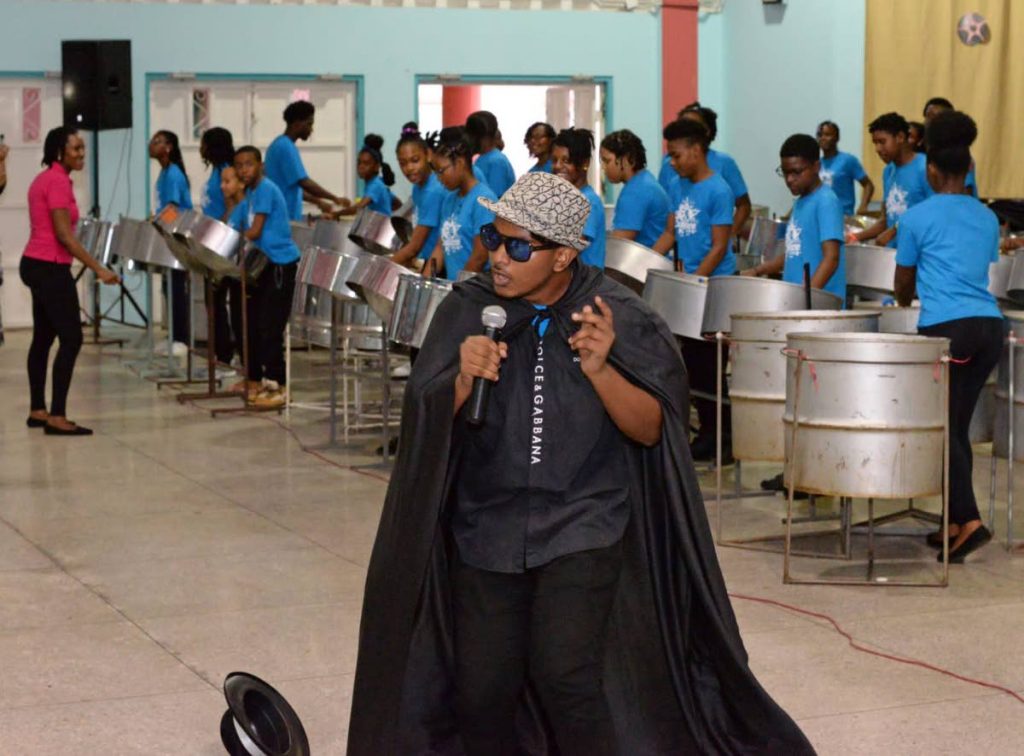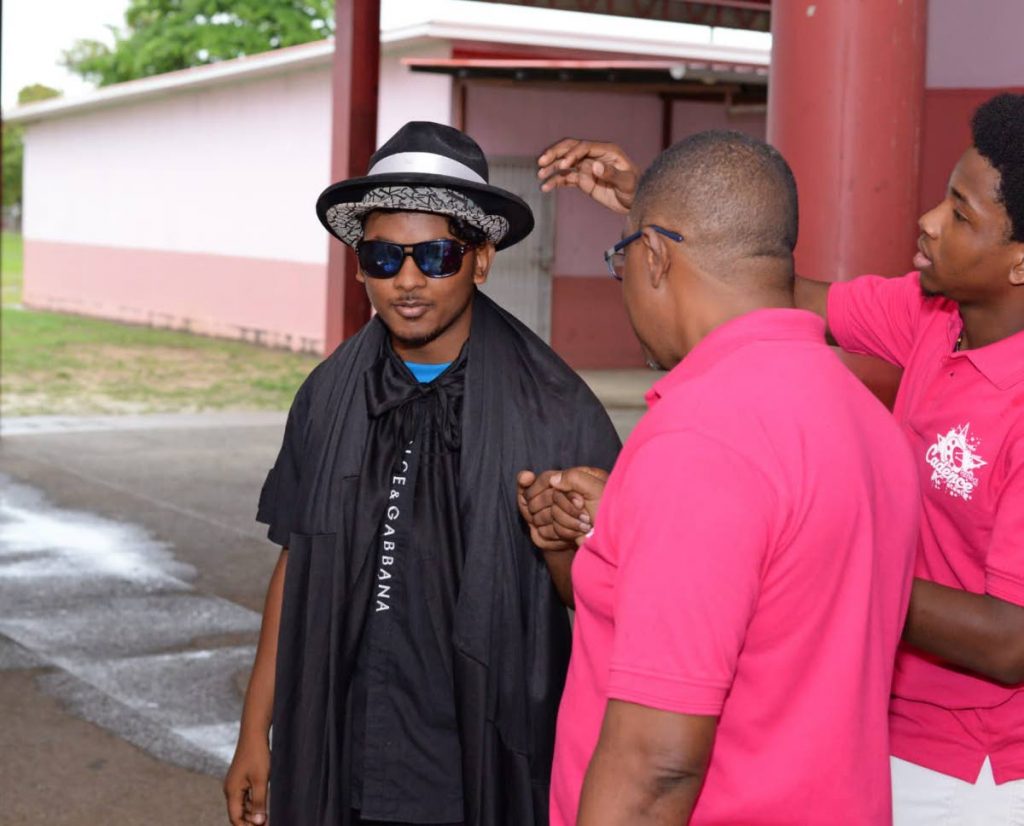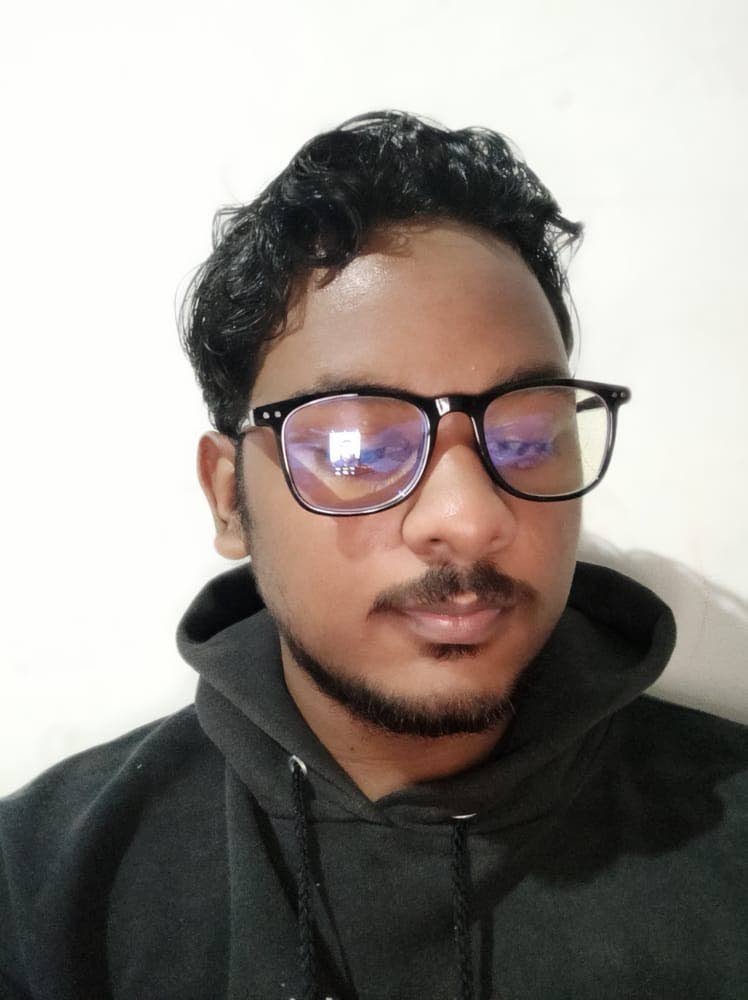Blind CSEC student Omar Harrinanan excels

AS a Caribbean student, the Caribbean Examination Council (CXC) exams are a definitive moment in your educational experience. For many, it can be one of the most gruelling experiences, triggering stress and anxiety in teenagers across the region.
In addition to the stress of preparing for exams, each student will have personal battles to overcome. Some students must endure the added pressures of overbearing parents, others may have learning disabilities. During the pandemic, according to the CXCs 2021 examination report in October, many students recorded having to deal with the death of a parent or guardian during their examination year.
Whatever the hurdle, it is safe to say that the 2021 CXC graduating classes for both the Caribbean Secondary Entrance Certificate (CSEC) and the Caribbean Advanced Proficiency Examination (CAPE) have had to prepare through one of the most difficult periods in the council’s history in the region.
For 20-year-old Omar Harrinanan, a blind student of Bon Air Secondary School, his disability was only one of the many challenges he has had to overcome this past year to succeed in his CSEC exams. Harrinanan achieved passes in eight subjects, receiving grade twos in English A and Spanish, grade ones in mathematics, human and social biology, accounts, and social studies and distinctions in information technology and principles of business.
Harrinanan, in a candid interview with Newsday, said he does not allow others to define him on the basis of his disability and believes, despite his resounding success, he is no different or any more special than the thousands of students across the region who have overcome personal tragedy to achieve success.

“Once you didn’t give up on yourself, you did great,” he says to all his CSEC comrades. “For all the students who wrote this year, no one outside of our year group can begin to comprehend what we went through academically, emotionally and mentally. It was so different. They would try to compare us to past years, but they would not understand what we went through.
“In my humble opinion, grades do not matter and they do not determine who a person is. Pass or fail, once you decided this year not to give up on yourself, against all odds, you have succeeded at life.”
The road to CXC
Harrinanan attended the School for the Blind for seven years before sitting his Secondary Entrance Examination (SEA) at 16 and attending Bon Air Secondary. He spoke highly of his treatment at the school, saying his teachers are very accommodating and insisted his classmates treat him as they would any other student.
“I had great teachers. They really worked with me. One thing I hate as a person is pity. When people find out you are struggling, they would say things like, ‘That’s so bad for you.’ You can tell just by how they say it with their voice, they feel bad for you. In my life, I have encountered people who have implied that they are ‘more than’ and I am ‘less than,’ and I genuinely hate it.
“I missed the first day of school (at Bon Air) and my friends would later tell me that my form teacher told them not to treat me any differently; to treat me normal. I really appreciated that. I honestly think I would have gone mad if I was babied.”
Harrinanan said he used the resources available to him to the best of his abilities. Although reading is difficult for him, he would read where he could and was grateful that his teachers sent soft-copy material for visual and audio learners, such as himself, to benefit from.
“On my own, if I didn’t understand the material and didn’t want to bother a teacher for an explanation, I would go on YouTube for like an hour or more, running through different videos to understand the topic. I repeated this behaviour until exams."
He said there is a wealth of information available to students, including online articles, videos and free courses and he feels students should take full advantage of all the material available to them.
“It’s so easy to complain 'bout what we don’t have, but if we don’t use it to the fullest extent, then what is the point in getting more?”
Harrinanan said he also received support from the Ministry of Education’s Student Support Services Division (SSSD) including two special needs aides, as well as a magnifier given to him by a teacher during his time at the School for the Blind which he used throughout his studies and for exams.

He also said he felt strongly about breaking away from the culture of parents comparing their children to others. “That is so bad for children mentally. I believe that is a part of our culture we need to stop. Everyone is different and going through a different path in life.”
Dealing with stigma
Harrinanan said as far as he remembers, he was born with a visual impairment. He said he remembers as a child having difficulty reading from the blackboard in primary school. He has a slight retina detachment in both eyes. In the left eye, he is slightly cross-eyed with low vision and in the right, he also has low vision.
However, an unfortunate accident with another student at school worsened his condition.
“I remember at recess, a boy was running and he bumped into me with his shoulder and hit the right side of my face. I believe that was when the retina disconnected. I remember seeing out of the eye and seeing a red filter. I went from seeing red to seeing black and white to seeing nothing at all. I should have said something, but as a child I just didn’t know.”
Harrinanan said as positive as he tries to be, he has had his moments of doubt and depression.
“Sometimes I tell people I hate being blind because I can’t drive and I hate waiting for taxis, just like everybody else who has to travel, disability or not.” He said as a person living with a disability he understands there are limits to what he can do, but he does not allow it to define him.
“My mother told me if you can’t drive, why not become successful and hire a chauffeur?” he joked. “It’s a simple workaround. My view on disability is, while yes, you are limited, understand that if you can’t do one thing, you can do something else. Don’t fall into what society says you can or cannot do.”
He said there is a certain stigma for blind people in Trinidad and Tobago where a blind person is limited to three things: making baskets, teaching or singing.
“There is always a need for people to do these jobs. We understand that, but why not branch out? People tell me I should give back to the community and become a teacher at the School for the Blind.
“But how is that giving back to the community? Wouldn’t giving back to the community be me pushing the limits and going into something new? That’s my view on giving back to the community. Don’t join it, expand it.”
Supporting others
Harrinanan said he loves interacting with new people and believes in helping others to the best of his ability.
“My greatest joy is honestly making other people smile. If I can give someone else some words of encouragement and it helps that will make my day. I like to see people succeed.”
He said life is too short to waste time obsessing over things that are going badly. “Be happy. That is important. I am not looking to be famous, better than anybody else. I just want to be me and be happy.”
He said since the news of his success, people have found him on social media and talked to him about their own personal struggles. He said as long as he has the time to respond to others, he will.
His Instagram handle is @dblindomo.

Comments
"Blind CSEC student Omar Harrinanan excels"